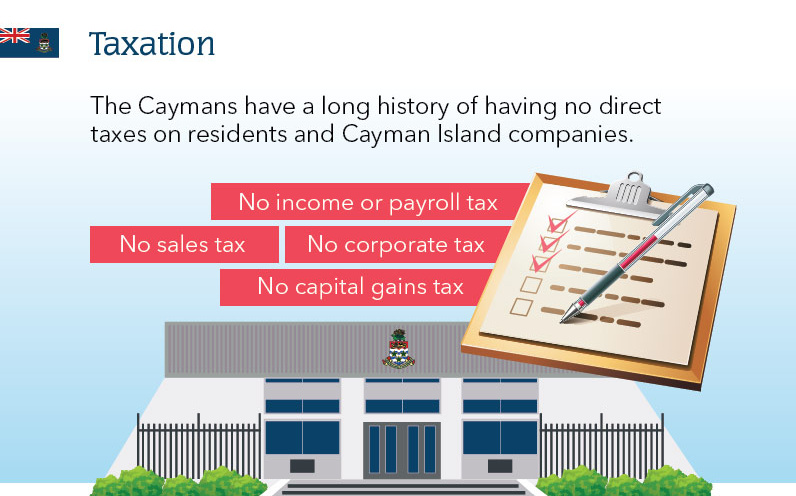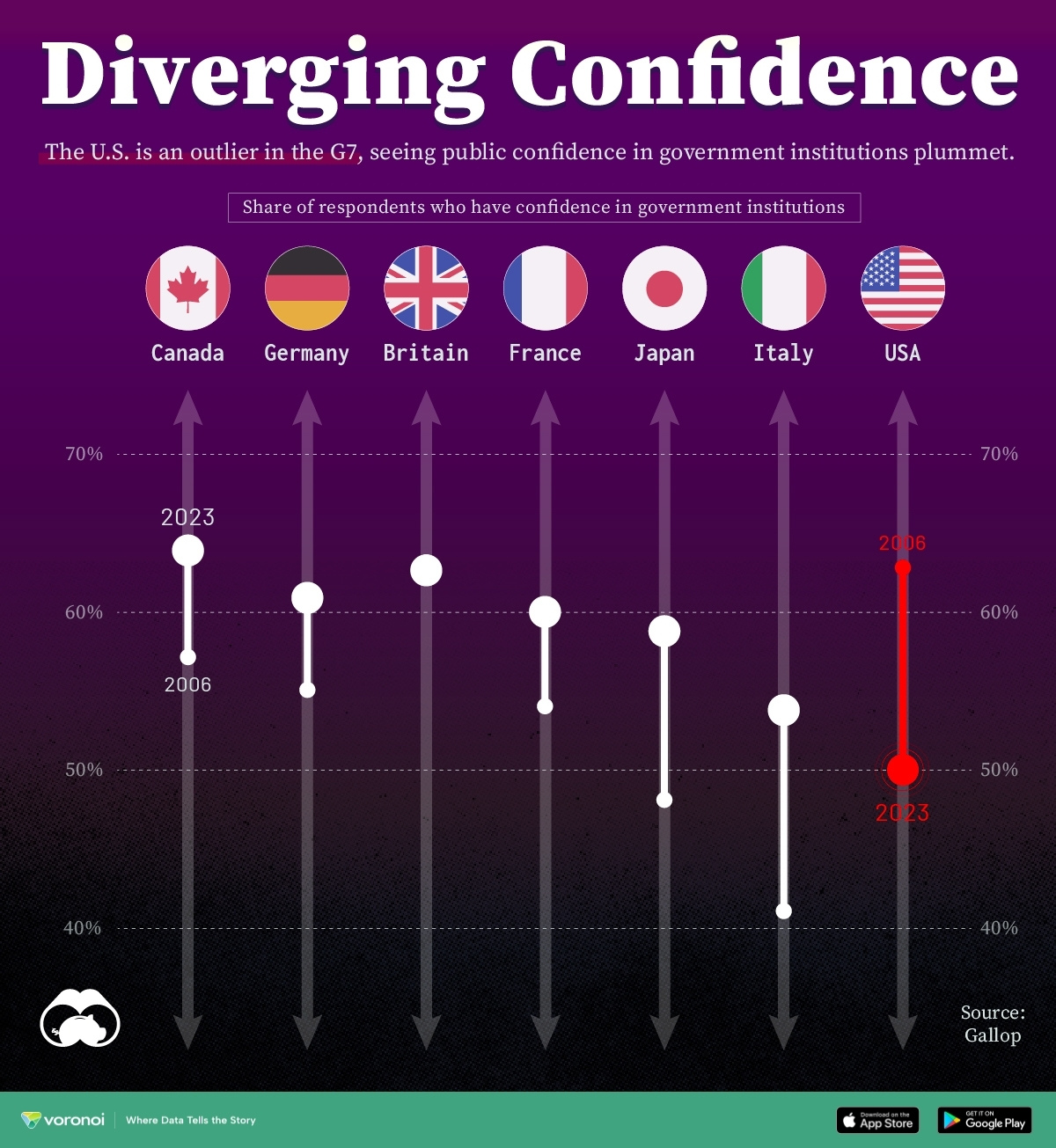Misc
Why the Cayman Islands Are Better For Business
Why the Cayman Islands Are Better For Business
Presented by Cayman Enterprise City
On February 8, 1794, the people of the Cayman Islands rescued the crews of a group of ten merchant ships. The ships had struck a reef and run aground during rough seas.
Legend has it that King George III of the United Kingdom rewarded the Caymanians with a promise never to introduce taxes as compensation for their generosity, as one of the ships carried a member of the King’s own family.
Whether this legend is true or not, the Cayman Islands have a rich history of relying on indirect taxes, making it one of the best places to do business in the world.
5 Reasons It’s Worth Relocating a Company to the Caymans
1. Life is Grand
The Cayman Islands are an English-speaking Overseas British Territory with year-round warmth and state-of-the-art infrastructure and attractions.
Grand Cayman, the largest of the three islands, has an area of about 200 km².
Its most striking features include: the shallow, reef-protected lagoon called the North Sound, as well as the famous Seven Mile Beach along the west of the island.
- GDP per capita: 14th in the world – The highest standard of living in the Caribbean.
- Ranked ‘The friendliest place on earth to live and work’ in a recent HSBC expat global survey.
- Ranked: “The Caribbean’s Best Beach” – Seven Mile Beach by Caribbean Travel & Life
2. The Ideal Business Jurisdiction
Located in the Eastern Standard Timezone and 3.5 hrs from Toronto and 3 hrs from New York City, Cayman is the ideal business jurisdiction. The island also has direct flights to London, the gateway to Europe.
The Cayman Islands have the some of the highest anti-money laundering compliance requirements and offers a pro-business regulatory environment.
3. Taxation
The Caymans have a long history of having no direct taxes on residents and Cayman Island companies.
- No corporate tax
- No capital gains tax
- No sales tax
- No income or payroll tax
This has partly allowed the Caymans to become the sixth largest global financial centre and the #1 home to hedge funds in the world.
4. A Gateway to World-Class Companies and Services
The Cayman Islands is home to many global institutions including banking, accounting, and law firms.
Companies in the Cayman:
- 40 of 50 of the world’s top banks have branches
- The Big 4 accounting institutions
- Global law offices such as Maples & Calder
It has a world-class infrastructure, excellent schools, colleges and medical facilities, plus every conceivable form of entertainment, sporting, dining and leisure facility.
5. Special Economic Zones
The Cayman Islands have recently introduced “Special Economic Zones” that specifically cater to exempted companies, creating an alternative licensing regime, as well as a number of additional incentives for entities wishing to establish a physical presence in the Islands.
- 100% exempt from corporate, capital gains, sales, income tax and import duties
- 100% foreign ownership permitted
- Five year renewable work/residence visas granted within 5 days
- 3-4 week fast-track set-up of operations
- Intellectual Property owned offshore
- No government reporting requirements
- Strategic base with easy access to lucrative North and Latin American markets
One More Reason: Cayman Enterprise City
Cayman Enterprise City (“CEC”) is an award-winning Special Economic Zone located in the tax-neutral Cayman Islands, created for knowledge-based industries and has developed into an innovative, entrepreneurial technology hub benefiting from a tax-exempt environment.
CEC has stripped away the red-tape and financial constraints normally associated with setting up an offshore Cayman company with a physical presence. CEC enables international companies to easily and cost-effectively set up offices with staff on the ground and have a genuine offshore physical presence and generate active business income in the Cayman Islands.
Politics
Charted: Trust in Government Institutions by G7 Countries
How much do you trust the government and its various institutions? We look at data for G7 countries for the time period of 2006-2023.
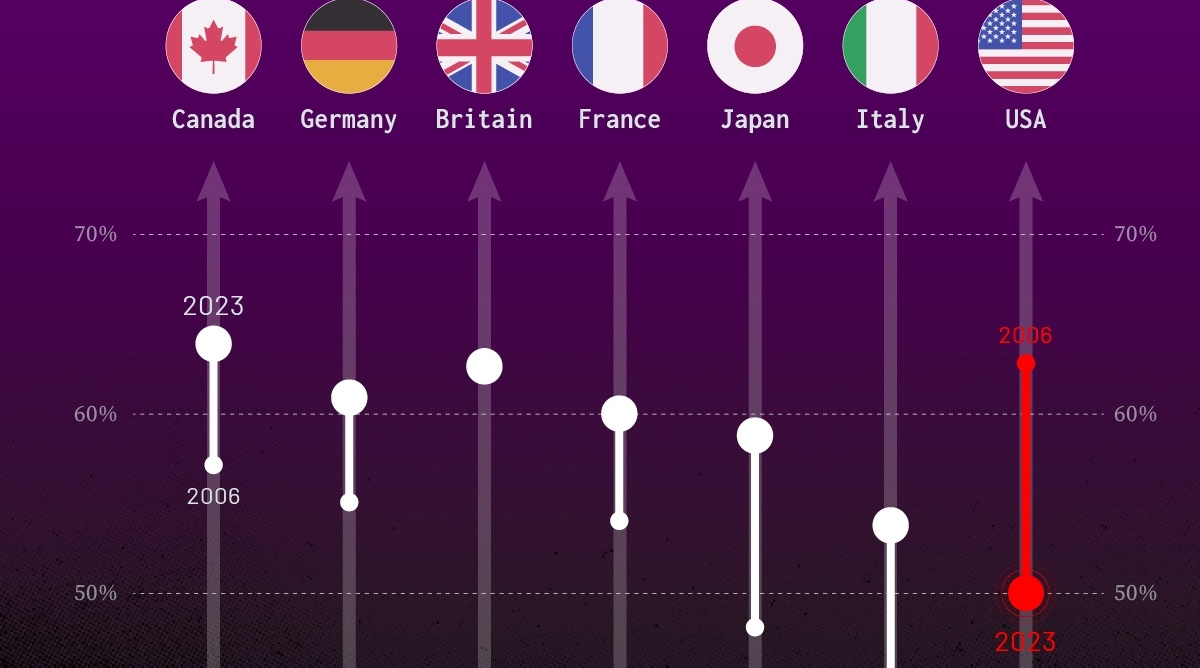
Trust in Government Institutions by G7 Countries
This was originally posted on our Voronoi app. Download the app for free on iOS or Android and discover incredible data-driven charts from a variety of trusted sources.
How much do you trust the government, and its various institutions?
It’s likely that your level of confidence probably depends on a wide range of factors, such as perceived competency, historical context, economic performance, accountability, social cohesion, and transparency.
And for these same reasons, trust levels in government institutions also change all the time, even in the world’s most developed countries: the G7.
Confidence in Government by G7 Countries (2006-2023)
This chart looks at the changes in trust in government institutions between the years 2006 and 2023, based on data from a multi-country Gallup poll.
Specifically, this dataset aggregates confidence in multiple national institutions, including the military, the judicial system, the national government, and the integrity of the electoral system.
| Country | Confidence (2006) | Confidence (2023) | Change (p.p.) |
|---|---|---|---|
| Canada | 57% | 64% | +7 |
| Britain | 63% | 63% | +0 |
| Germany | 55% | 61% | +6 |
| France | 54% | 60% | +6 |
| Japan | 48% | 59% | +11 |
| Italy | 41% | 54% | +13 |
| United States | 63% | 50% | -13 |
What’s interesting here is that in the G7, a group of the world’s most developed economies, there is only one country bucking the general trend: the United States.
Across most G7 countries, confidence in institutions has either improved or stayed the same between 2006 and 2023. The largest percentage point (p.p.) increases occur in Italy and Japan, which saw +13 p.p. and +11 p.p. increases in trust over the time period.
In the U.S., however, confidence in government institutions has fallen by 13 p.p. over the years. What happened?
Key Figures on U.S. Trust in Institutions
In 2006, the U.S. was tied with the UK as having the highest confidence in government institutions, at 63%.
But here’s where the scores stand in 2023, across various institutions:
| 🇺🇸 Institutions | Confidence (2023) |
|---|---|
| Military | 81% |
| Judiciary | 42% |
| National Government | 30% |
| Elections | 44% |
| Overall | 49% |
Based on this data, it’s clear that the U.S. lags behind in three key indicators: confidence in the national government, confidence in the justice system, and confidence in fair elections. It ranked in last place for each indicator in the G7.
One other data point that stands out: despite leading the world in military spending, the U.S. is only the third most confident in its military in the G7. It lags behind France (86%) and the United Kingdom (83%).
-
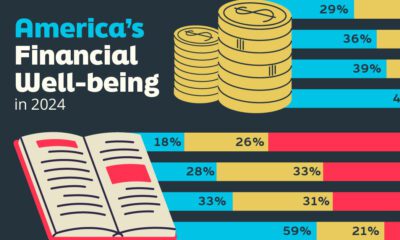
 Money7 days ago
Money7 days agoCharted: Who Has Savings in This Economy?
-

 Green2 weeks ago
Green2 weeks agoRanked: The Countries With the Most Air Pollution in 2023
-

 Green2 weeks ago
Green2 weeks agoRanking the Top 15 Countries by Carbon Tax Revenue
-

 Markets2 weeks ago
Markets2 weeks agoU.S. Debt Interest Payments Reach $1 Trillion
-

 Mining2 weeks ago
Mining2 weeks agoGold vs. S&P 500: Which Has Grown More Over Five Years?
-

 Energy2 weeks ago
Energy2 weeks agoThe World’s Biggest Nuclear Energy Producers
-
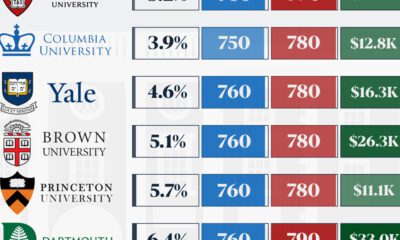
 Misc2 weeks ago
Misc2 weeks agoHow Hard Is It to Get Into an Ivy League School?
-
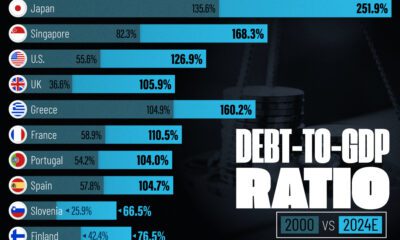
 Debt2 weeks ago
Debt2 weeks agoHow Debt-to-GDP Ratios Have Changed Since 2000


